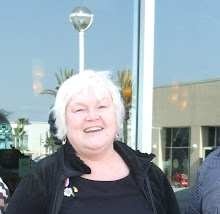I think that both the individual and the group work are important, but I lean toward allowing students who are unwilling or unable to work as a group to have some alternatives. The goal of any class is what goes on with the student singular. In work, such as designing a bridge or organizing a business, the individual is not as important as the final product. So, while students need to learn to play well with others in order to do well in a job situation, their individual ability to think critically, understand deeply, critique others honestly and fairly, and evaluate the critiques of others without being rude or over emotional are all needed for our final product to be able to compete in a global economy.
There are in my mind issues with group formation. Last quarter in Walden I was assigned group members within the first two weeks of two classes. One of those groups I found rewarding and valuable to my learning process. The other group was total frustration. I spent so much time and emotional energy on that group that I was not able to complete KAM as I had wanted to do.
So back to assessment of groups, I applaud peer, learner-centered, and self assessment of the functioning of the group and instructor assessment of the work product using a rubric. I base these ideas on using collaborative learning in F2F classes during my teaching experiences. I used Daniel’s Literature Circles, Reciprocal Teaching, and Socratic Seminars as tools to help my students own their own reading and interpretation of text. I monitored and used rubrics to assess the learning of my students, and I was pleased with the results.
Saturday, April 17, 2010
Subscribe to:
Post Comments (Atom)

Cynthia,
ReplyDeleteHow true about groups not necessarily working out. I agree with you that F2F is a better way to get to know people, and then build groups based on compatibility. Of course, there is likely to be the group of "leftovers" that may not work out to well.
I feel the same way about relectant or inactive members of a group. It is most difficult when your success and ability falls upon the completion of other group member's assignments. That is when the fine line must be walked, keep trying to bring the reluctant into the group or finally dicuss the problem with the teacher.
ReplyDeleteThanks for sharing the tools that you use in class. I like it when teachers share what they use in class and is beneficial to them. It allows us to work together smarter, not harder.
You have a interesting view of online learning. If you allow students who are unwilling to work in a group do alternatives method to achieve a grade, it’s that going away from the course objectives? When you take a class, don’t you believe that it’s the responsibility of the members to do their part so everyone will get a good grade?
ReplyDelete